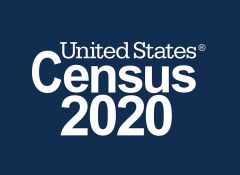|
The deadline to complete the Census has been abruptly changed and the Census Bureau will stop collecting self-response and field data on September 30, 2020. AAPD is deeply concerned about this shortened timeline to count all persons living in the country for the 2020 Census. Ending the self-response phase and critical door-knocking efforts of the Census one month early risks severely undercounting already hard-to-count populations like people with disabilities, immigrants, people of color, those who are low-income or experiencing homelessness, and others. An undercount means the loss of important federal funding for programs like Medicaid, food assistance, housing vouchers, education services, and more – across communities in every state. We hope that you will join us in the urgent effort to make sure that everyone is counted in the 2020 Census. Thank you!
Why the Census Matters for People with Disabilities
The Census Bureau has identified people with disabilities as a hard-to-count population, which means they are at a greater risk of being under-counted in the census. The reasons for this include accessibility challenges and wider systemic inequalities. People with disabilities are also over-represented among other groups that are considered hard-to-count, such as people of color people with low incomes, and people experiencing homelessness.
An Accessible Get Out The Count Plan
The Census Bureau has stated that the 2020 Census will be fully accessible to everyone. The Bureau has stated that it will be conducting checks to ensure that all of its electronic and information technology systems comply with the law, including Section 508 of the Rehabilitation Act.
AAPD 2020 Census Campaign
AAPD has been working to promote the 2020 Census campaign and raising awareness on its importance using the materials at the link above. Join us in this digital campaign by making use of the photos and posts that are included.
Update on the 2020 Census for College/University Student Housing Administrators
The Census Bureau has been closely monitoring the national situation with regard to the COVID-19 pandemic and has noted that a number of colleges and universities have closed their campus housing temporarily. In light of this change, the Census Bureau wanted to convey that we are still planning to enumerate college students, but need to make adjustments in light of the closings, and to protect the health of our staff and your students, while ensuring an accurate enumeration.
Promotional Materials and Guidelines
The United States 2020 Census Brand Guidelines is a new guide that introduces the 2020 Census logo and tagline, a key messaging tool for the decennial census outreach effort. This guide is to be used for all externally focused communications materials.
Language Resources
For the 2020 Census, the Census Bureau will provide video language guides, print language guides and language glossaries in 59 non-English languages.
2020 Census: Mobile Questionnaire Assistance Operation, Project Plan
The Census Bureau proposed a Mobile Response Initiative in response to the Joint Explanatory Statement accompanying the Consolidated Appropriations Act, 2019 (P.L. 116-6). The Mobile Response Initiative proposes to incorporate the use of technology to provide readily accessible ways for people to respond to the Census. The highly mobile locations gave way to naming the operation “Mobile Questionnaire Assistance” or MQA.
Census Protection Hotlines
The Lawyer's Committee, Arab American Institute, Asian Americans Advancing Justice and NALEO have created a multilingual census hotline to help the communities you serve -- 888-Count20!
The Census is Safe and Protected
It's important that the people you serve know about and trust in the strong protections in place to protect themselves and their data. Check out this document on the census and confidentiality.
How Census Makes an Impact
From housing to healthcare, education to jobs -- the census is a crucial way to ensure communities get what they need. Here's a quick guide to help answer the big "WHY?" while in the field.
|

